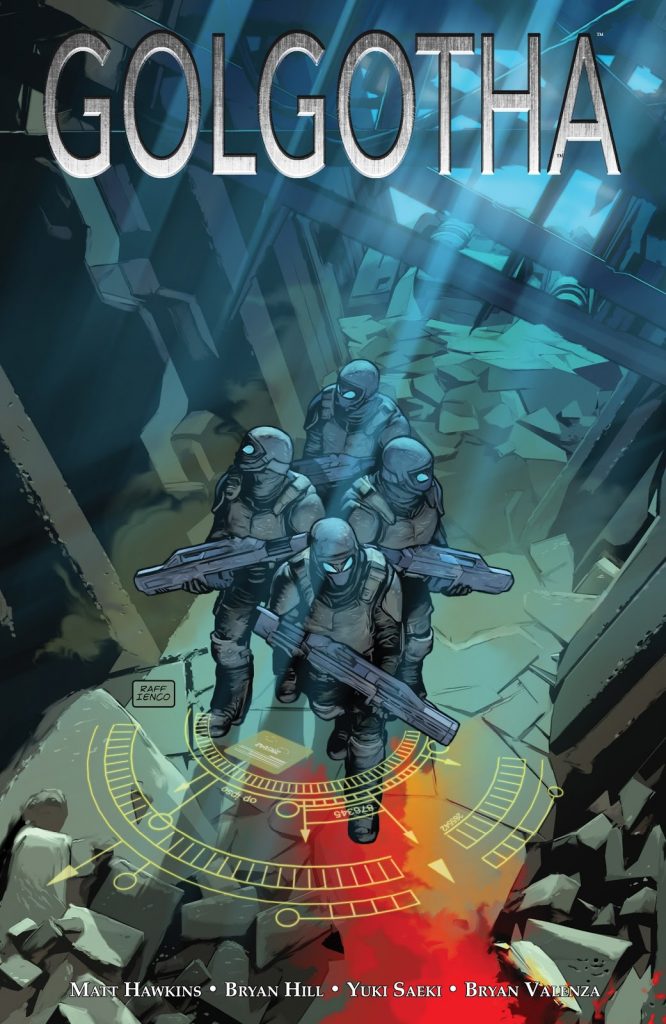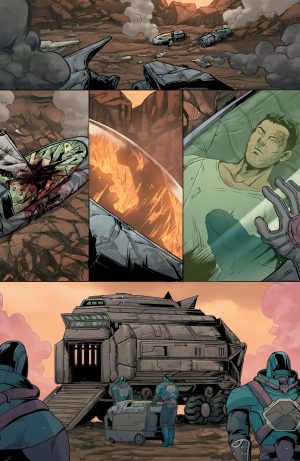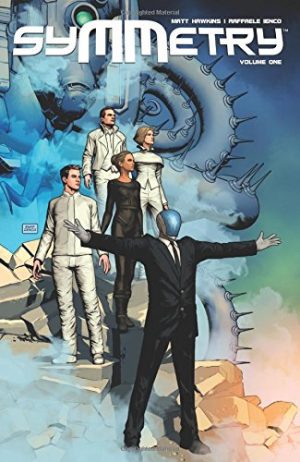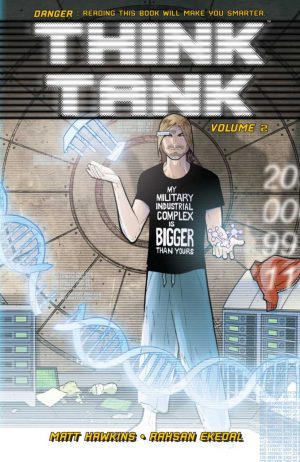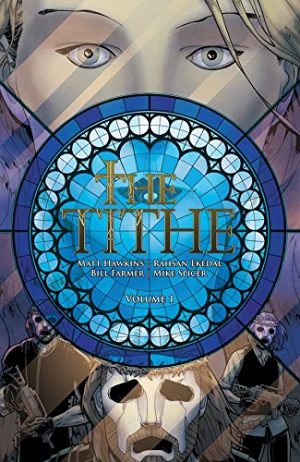Review by Frank Plowright
Matt Hawkins is a consistent source of well researched, smart and entertaining action thriller or science-fiction graphic novels (see recommendations), and Golgotha is another of his concepts, although fleshed out with Bryan Hill. They begin with Mike Lawton, career military in 2091, royally screwed after either poor information or a leak. He’s a hero, but an embarrassment, and his only real option is to head off-planet, offered the one way trip to Golgotha, where it’s believed new mining opportunities await.
As is the case with other projects from Hawkins, the plot grabs the interest, but it’s backed up with considerable thought about what life would be like in the future, extrapolating technology and reasoning about the needs of a society. That application also results in rounded personalities, much learned about Lawton as he considers what he’ll dream about in stasis, and the horror of scientist Jennifer Carpenter learning she’s fallen decades behind. She’s a provocative presence, Hawkins and Hill cleverly positioning her as yin to his yang.
It takes a while for it to sink in how good Yuki Saeki’s art is, because everything is geared toward telling the story, which is so very efficiently handled. Beyond that, Golgotha’s success depends on emotional conflict as well as physical, and while expressions on Saeki’s people are standard she still manages to convey what they’re feeling.
Like all the best science fiction, Golgotha explores the issues of the present, opening into a meditation on what leaders feel the general population ought to know, and the extremes they’ll go to in ensuring their view of what’s right for everyone prevails. It’s there in Lawton’s treatment at the start, and followed all the way through, exploring variations on the theme. However, Hawkins and Hill ensure that’s the subtext, and keep in mind that it’s the action elements that sell their ideas, so Golgotha never falters in that respect. It connects from start to finish.
Hawkins always shares his research and ideas that prompt his creations, and the back pages of Golgotha fulfil that brief.
